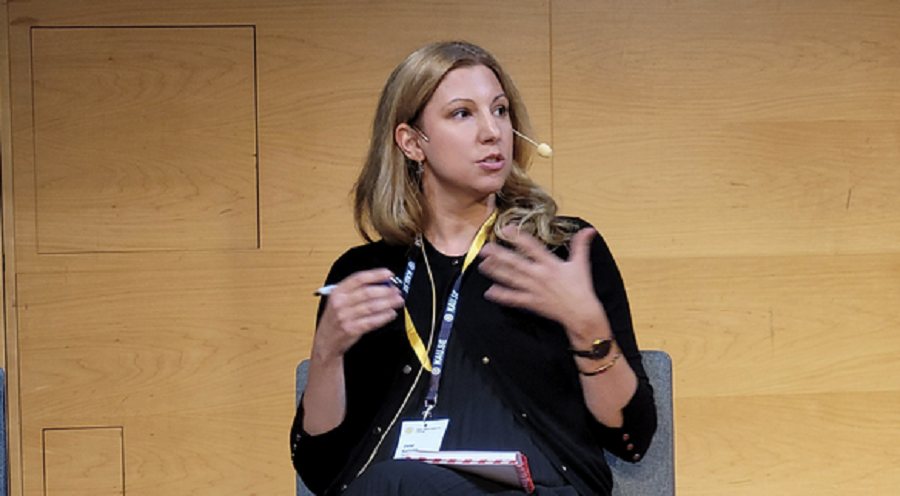Online violence against women must be stopped
Women and girls who share their opinions on social media often face sexist and humiliating reactions. European legislation should put an end to this. Irene Kamara hopes that society’s perception of what is ‘acceptable online behaviour’ will also change.

In a recent Eubarometer survey, conducted in all EU Member States, on the topic of gender-based violence against women, one in five respondents totally agreed that ´if women share their opinion on social media, they should accept that they elicit sexist, demeaning, and/or abusive replies.´
Shocking as those percentages might be, they do represent a sad reality: gender stereotypes continue to exist and fuel harmful behaviours, both offline and online. The European Institute for Gender Equality warns that women and girls suffer disproportionately from all forms of violence, including cyberviolence, and this is one of the obstacles to gender equality.
The impact of such acts is often detrimental to the health and mental well-being of the victims. In some cases, the harmful acts last for years and they are usually exarcerbated with the use of different technologies. In a US case, an offender, who was cyberstalking a woman for six years, used AI-based chatbots that would impersonate the victim and invite strangers at her real home address.
Cyberstalking is a form of cyberharassment. Other types are doxing, which is the sharing of someone´s personal information to the public e.g. social media with the aim to cause physical or psychological harm to that person, and cyberflashing, the sending of unsolicited nude images.
This is a guest column by the Tilburg Young Academy (TYA). Each month, a different member of TYA highlights developments in the academic world.
From a legal perspective, some forms of cyberharassment are explicitly punishable in national law. For example, since 1st January 2024, doxing is illegal in The Netherlands and may lead up to 2 years of imprisonment and/or over 20.000 euro pecuniary fine. Some other forms, however, have been insufficiently addressed in legislation or inconsistently across EU Member States.
To address such problems, the EU has adopted a new Directive on combating violence against women and domestic violence. The 1385/2024 Directive, which has to become part of the EU Member States law by June 2027, criminalises several aspects of cyberviolence against women and girls, including cyberharassment. Cyberstalking, cyber incitement to violence or hatred, the threatening by means of ICT, and cyberflashing are all criminal offences under the Directive.
The Directive also makes sure that reporting of cyberharassment can be done online, includes measures for victim support, removal of the harmful online material, and obliges all Member States to have a national action plan on how to prevent gender-based violence. Despite referring to violence against women, the Directive also includes provisions for victims more generally, namely persons experiencing intersectional discrimination that are at an increased risk of violence.
The adoption of this new law in the European Union is an important step forward in many ways. First, all 27 Member States of the EU will now criminalise the same types of behaviours as cyberharassment. On the one hand, EU countries with currently no criminal offence about cyberharassment will have to update their national legislation to establish one.
On the other hand, EU countries with diverse ways of criminalising cyberharassment will have to also adapt their laws to be in line with this Directive. Also, all Member States will offer the same minimum penalties for cyberharassment.
Second, this new law is a gender-specific law – it recognises that women and girls might be targeted with certain behaviours online (and offline) just because of their gender. It thus offers specific redress measures that are victim- and gender-focused, and recognise how harmful cyberharassment and other forms of cyberviolence might be.
Hopefully, those changes in the law will bring more reports and complaints, the victims will find some redress, and those developments will start impacting societal (mis)perceptions about what should be acceptable behaviour online.
Irene Kamara works as Assistant Professor Cybercrime law and Human Rights at the Tilburg Institute for Law, Technology, and Society. She conducts research on technology-facilitated cyberviolence in the framework of her Starter´s grant, the CArE project on ´Securing individuals’ human rights against technology-facilitated cyberviolence.´








